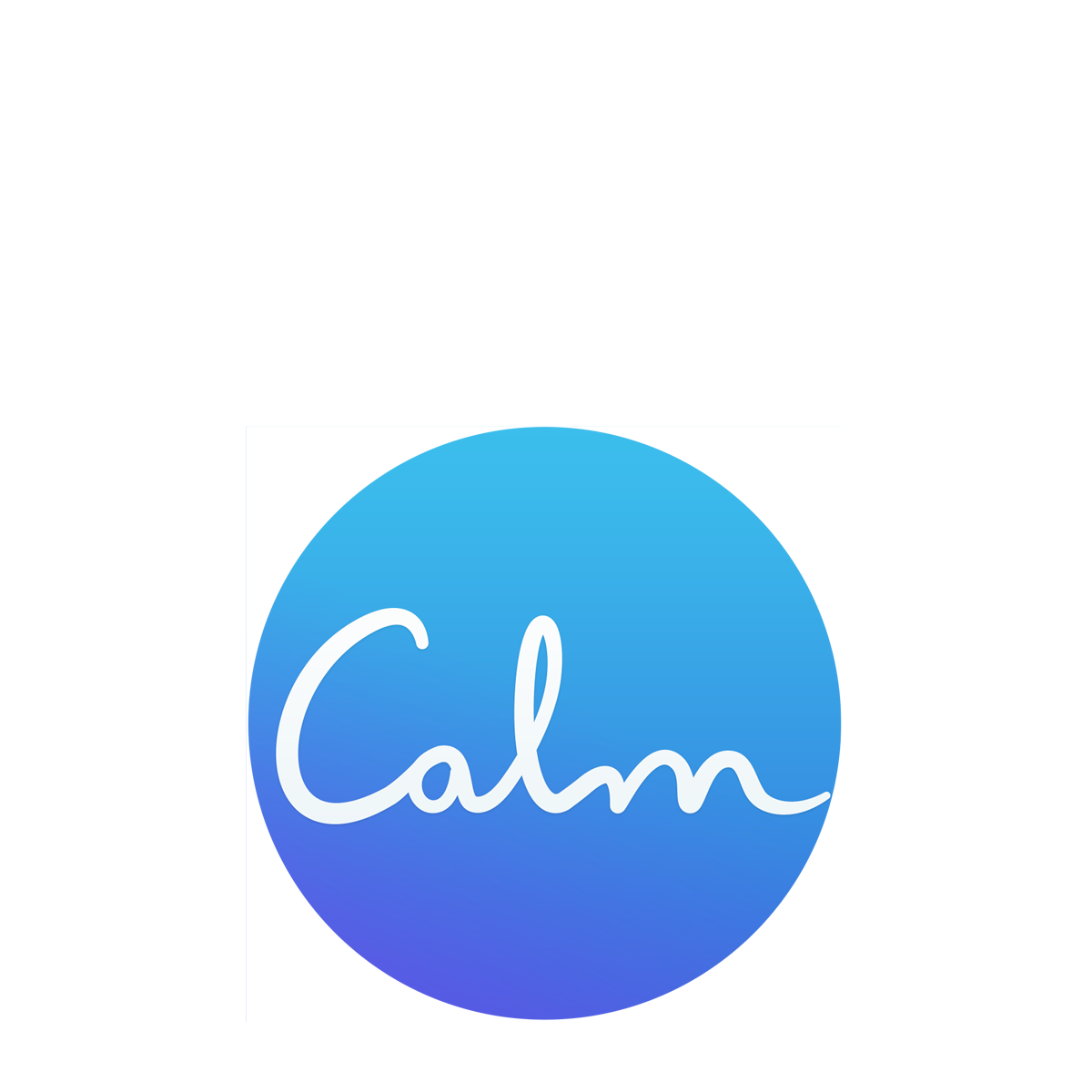How (and why) to add morning meditation to your routine
Learn about the many benefits of starting the day with mindfulness. Plus, 7 tips to create a morning meditation routine and guided practices to explore.
Mornings tend to set the tone for the rest of the day. A calm and centered start may lead to a more productive and enjoyable day, while a rushed and chaotic morning might leave you feeling off-balance. Morning meditation can have both immediate soothing effects and long-term benefits to daily life, like cultivating inner peace and promoting clarity. So it’s no wonder why so many choose to start their day with a meditation practice.
The benefits of morning meditation
Morning meditation can be a powerful way to set a positive and peaceful tone for your entire day. When you wake up, taking time to meditate instead of jumping into the chaos of your normal activities can have profound effects on your day-to-day life. Even a few minutes every morning can bring positive changes.
Increased focus: By taking time for morning meditation, you're training your mind to concentrate and stay present. This means you might find it easier to focus on your work or studies later in the day.
Decreased stress: Meditating in the morning can help manage life’s stresses. Meditation—when you’re not worrying about what needs to be done or what happened yesterday—can lead to a calmer day.
Reduced brain chatter: Morning meditation can help quiet the busyness in your mind. By focusing on your breath or a simple mantra during meditation, you give your mind a break.
Better connections with others: When you're calm and centered, it’s easier to connect with others. Meditation helps cultivate patience and empathy, which can mean better relationships at home, work, or school.
Enhanced self-awareness: Regular morning meditation can give you the opportunity to check in with yourself, understand your feelings, and recognize what you need. This can help you make better choices for yourself throughout the day.
Improved health benefits: Research has shown that meditation can have physical health benefits like lowering blood pressure, improving sleep, and boosting the immune system.
Examples of morning meditation routines to inspire you
A structured morning meditation routine can significantly enhance the quality of your mornings. The following routines are a few frameworks to help get you started. Adapt them according to your preferences to find a routine that works for you and makes your mornings more mindful.
Routine 1: Gentle awakening meditation
Wake up and hydrate: Start your day by waking up at a consistent time everyday. Drink a glass of water as soon as you wake up to rehydrate your body.
Breath awareness (2 minutes): Sit comfortably and spend two minutes focusing on your breath. Notice the sensation of air entering and leaving your body.
Full body scan meditation (5 minutes): Starting from your toes and working up toward your head, notice the sensations in each part of your body.
Set intentions for the day (2 minutes): Finish your routine by setting positive intentions for the day ahead, focusing on what you wish to achieve or how you want to feel.
Routine 2: Mindful start meditation
Wake up to soft music: Use calming music to wake up instead of a jarring alarm.
Mindful stretching (3 minutes): Try gentle stretches to awaken your body. Be mindful of each movement and breath.
Gratitude meditation (5 minutes): Reflect on three things you’re grateful for, focusing on the feelings these thoughts bring.
Mindful breakfast: Have your breakfast mindfully, paying attention to the flavors and textures.
Routine 3: Energizing morning meditation
Wake up and freshen up: Start your day with a refreshing activity like washing your face with cool water or taking a cold shower.
Walking meditation (5 minutes): Try a short walking meditation, paying attention to the sensation of each step and your surrounding environment.
Guided imagery meditation (5 minutes): Find a peaceful spot to sit and listen to a guided imagery meditation, visualizing a serene landscape or scenario.
Journaling (3 minutes): End your routine by journaling your thoughts, feelings, or anything you're looking forward to in the day.
How to start the day with a meditation (if you’ve never tried it before)
Embarking on your meditation journey can be exciting and maybe a little daunting, especially if meditation is new to you. Follow these steps to guide you through the basics so meditation can become an accessible part of your life.
1. Find a comfortable seat
Choose a comfortable spot where you can sit undisturbed, like a chair, a cushion on the floor, or your bed. Find a position where you can stay still for a while without feeling uncomfortable, but remain alert.
2. Set aside time
Dedicate a specific time for meditation that fits your schedule. Start with just 2-5 minutes each day, and set a gentle alarm if that helps you keep track of time without worrying about it.
3. Feel your body
Notice how your body feels where you sit. Feel the weight of your body on the chair or floor to help ground you in the present moment. Observe any areas of tension and consciously relax them.
4. Focus on your breath
Feel the air moving in and out of your nose or mouth. Notice the rise and fall of your chest or belly. Initially, just try to follow three full breaths from start to finish.
5. Observe your thoughts
Watch your thoughts no matter what they are as they come and go, without judgment. Imagine them like clouds passing in the sky. Don’t worry about stopping them—just aim to notice them.
6. Be kind to yourself
If your mind wanders, gently bring your focus back. Be patient and kind with yourself as you learn. Meditation is a practice, and it’s okay not to be perfect. Acknowledge one thing you did well at the end of each session, even if it's just showing up to meditate.
7. Close with gratitude
Finish your meditation by thanking yourself for taking this time for your wellbeing. You might also set a positive intention for the rest of your day.
7 ways to make morning meditation part of your routine
Incorporate these tips into your routine to make morning meditation a nourishing daily habit. Whether you're following a guided morning meditation or exploring meditation alone, find what works for you and stick with it.
1. Pick a time and place
Maybe you feel great meditating right after you wake up, sitting up in bed. Or perhaps there’s a special corner of your home where you can be undisturbed post-coffee or breakfast. Find a time and place where you can be consistent. It doesn’t have to be for long, even five minutes can make a difference.
💙 Learn how to set New Routines (and keep them) as you aim to build a new morning meditation habit.
2. Bring mindfulness into your regular routine
Pay attention to the sensations and experiences as you shower, brush your teeth, or prepare and eat breakfast. Notice the smell of your coffee, the feel of the water on your skin, the taste of your food to help continue your meditation practice throughout your morning.
💙 Discover and practice the art of Noticing to incorporate mindfulness into everything you do.
3. Be flexible
Some days you might feel like you need a longer meditation session, while a few deep breaths might be enough for other days. If you’re feeling restless, try a walking meditation. If you’re sore, add some gentle stretches. Listen to your body and mind, and use your morning meditation routine to give yourself what you need that day.
4. Start with guided morning meditations
If you're new to meditation or find it challenging to focus, guided meditations can be very helpful. Guided meditations provide directions and focal points for your practice, so it’s easier to stay engaged and gain the benefits of meditation.
💙 New to meditation? Start Here with Jeff Warren for an introduction to meditation.
5. Make it enjoyable
If you like music, consider starting or ending your meditation with a favorite calming track. If you enjoy a certain scent, light a candle or use an essential oil to enhance your experience.
💙 Try listening to the Songs for Cozy Mornings playlist to set the tone for you meditation and the day ahead.
6. Track your progress
Keep a journal of your meditation journey to note how you feel before and after meditation, any challenges you face, and how your practice is evolving. This can be a motivating way to see your progress over time.
7. Be patient and kind to yourself
Some days, meditation might feel easy and refreshing, but other days might feel like a struggle. That's perfectly normal. Be kind to yourself and remember that every practice, no matter how small, is a step forward in your mindfulness journey.
💙 Shake off the Impatience by following along to this session of the Daily Move with Mel Mah.
Morning meditation FAQs
Q: What is the best meditation to do in the morning?
The best morning meditation is the one that suits your needs and feels right for you. A simple breath awareness or gratitude meditation might work well, helping center your mind so you’re prepared for the day. A gratitude meditation can start things on a positive note. If your mornings are usually hectic, a short and simple practice may be best. On quieter mornings, you might try a longer session or a guided meditation. Experiment with different types and see what feels best for you.
Q: Is it good to meditate as soon as you wake up?
Meditating as soon as you wake up—known as morning meditation—can help you start your day with peace and clarity before getting caught up in the day's activities. However, the best time for meditation is when it fits smoothly into your schedule. If right after waking up doesn't work for you, find another time that does.
Q: Is it better to meditate in the morning or at night?
Whether it's better to meditate in the morning or at night depends on your personal routine, lifestyle, and what you hope to gain from meditation. Morning meditation can be a great way to start your day with a clear, calm mind and can increase your focus and productivity. Meditating at night can be an excellent way to unwind and relax, helping you process the day's events, reduce stress, and improve sleep quality.
The best time to meditate is one that fits naturally into your schedule and feels most beneficial for you. Some people find that morning meditation energizes them for the day, while others prefer the soothing effect of meditating before bed. Experiment with both to see what works best for you, then make it a regular part of your routine.
Q: Why is 5am the best time to meditate?
Meditating at 5am is often considered beneficial because it's typically a quiet and peaceful time, with fewer distractions. The early morning stillness can make it easier to concentrate and deeply connect with your meditation practice. Additionally, meditating at this time can infuse the rest of your day with a sense of calm and focus. However, the "best" time is subjective and varies from person to person. If 5am doesn't fit your schedule or body clock, choose a time that works better for you.
Calm your mind. Change your life.
Mental health is hard. Getting support doesn't have to be. The Calm app puts the tools to feel better in your back pocket, with personalized content to manage stress and anxiety, get better sleep, and feel more present in your life.













